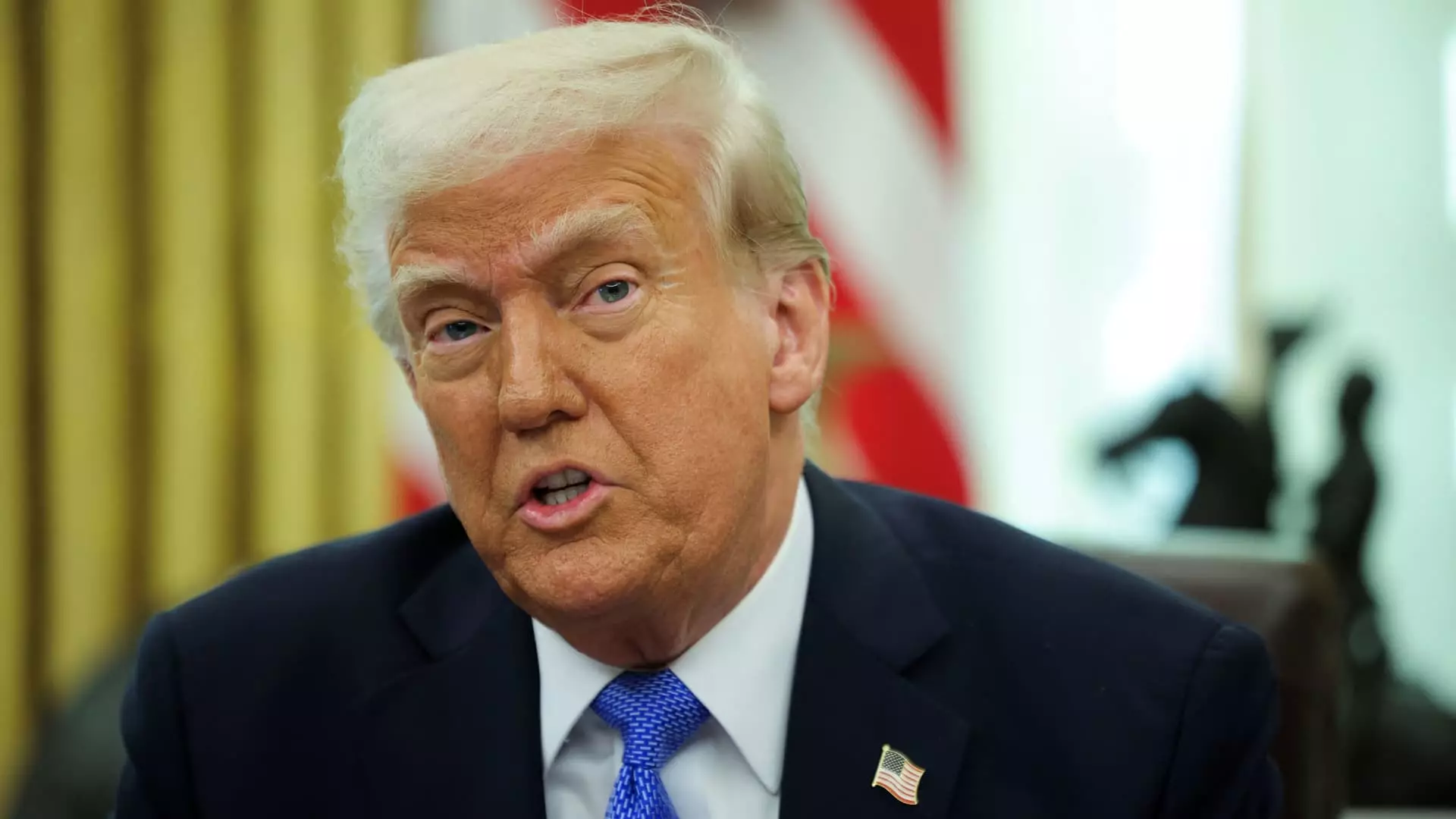In a surprising move that can be viewed through a critical lens, President Donald Trump’s recent decision to transfer the management of federal student loans from the Department of Education to the Small Business Administration (SBA) has raised a flurry of concerns. The sheer audacity of this initiative speaks volumes about the priorities of this administration, particularly regarding an issue that directly impacts over 40 million Americans. With outstanding federal education debt surpassing a staggering $1.6 trillion, one would expect a more meticulously considered approach to such a significant financial portfolio.
Unqualified Oversight: A Recipe for Disaster
The announcement, which Trump touted during a press briefing, offers little reassurance for borrowers who have experienced the bureaucratic challenges of student loan management. Critics, including higher education experts, have pointed out that the SBA lacks the relevant experience required to handle a financial minefield such as federal student loans effectively. The anticipated transfer triggers questions about the ability of an agency primarily tasked with small business assistance to adeptly handle such a complicated debt portfolio. It could lead to mismanagement, errors, and an alarming compromise of borrower privacy, ultimately leaving millions in a precarious situation.
The Perils of Unchecked Power
One of the most alarming aspects of this decision is the apparent disregard for the established protections afforded to borrowers. Consumer advocates are justifiably worried that this institutional shift could jeopardize crucial programs such as Public Service Loan Forgiveness. The unfettered power of the President and the capriciousness of executive orders could dismantle years of progress in student loan reform. While Trump asserts that the SBA is ‘set for it,’ the lacking qualifications stir fear that the transition could be more about political posturing than genuine concern for the welfare of American students and graduates.
Sowing Confusion in the Right Direction
Interestingly, Trump noted earlier intentions to involve the Treasury Department in this transfer, which many experts deemed the most sensible choice due to its existing role in collecting past-due debts through the Treasury Offset Program. This left many scratching their heads when the focus shifted to the SBA. By opting for an agency with no prior handling of student loans, Trump not only confuses borrowers but also invites skepticism about the integrity of such an important operation. One might question whether this can be characterized as a ‘cutting-edge strategy’ or merely a troubling example of hasty decisions bereft of proper analysis and consultation.
Rights vs. Reality: What Borrowers Need to Know
Despite the upheaval, experts assert that the core terms and conditions of federal student loans will remain unchanged. Borrowers’ rights, established through the signing of master promissory notes, ought to entrench a level of protection. However, the reality is more complex. As these rights come under the fog of administrative incompetence, the question isn’t just about legal guarantees but practical accessibility to the protections that students would need to navigate a potentially chaotic new landscape.
In essence, while the rationalization behind this bureaucratic upheaval may try to paint a picture of streamlined efficiency, the implications of such a decision could be markedly detrimental to the very citizens it purports to assist.


Leave a Reply